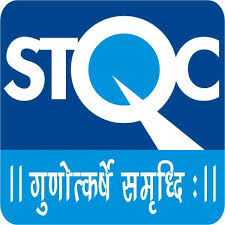Based on the MoU on ‘Launchingthe Financial Dialogue between the People’s Republic of China and the Republicof India’ signed in April, 2005, the two sides have successfully held fiverounds of dialogues in April of 2006, December of 2007, January of 2009, Septemberof 2010 and November of 2011. The Sixth China-India Financial Dialogue was heldon September 26, 2013 in Beijing.
During this Dialogue, the twosides held in-depth discussions on new challenges facing the global economy,macro-economic situations and policies in China and India, progress onstructural reforms in both countries, cooperation under multilateral frameworksas well as bilateral financial cooperation. Both sides agreed to strengthenregular communication and coordination at various levels on macro-economicpolicies and major international economic and financial issues.
Macro-economic situation and policy
Both sides recognized thatglobal economic recovery was still fragile with downside risks remaining high. Volatilityin financial markets has also intensified. With growth picking up in advancedeconomies, there is a need for them to collaborate with Emerging MarketEconomies (EMEs) on the pace and timing of recalibration of their unconventionalmonetary policies and strengthen communication with the market to avoidnegative spillovers. As a group, the EMEs have continued to grow but the paceof growth has slowed in several countries. Under these circumstances, China andIndia called for greater international coordination on economic policies,particularly in the implementation of policy measures adopted by the G20 toboost growth and employment for promoting strong, sustainable and balancedgrowth of the world economy.
Macro economic policy and structural reform in Chinaand India
Both sides recognized theimportance of sound macro-economic policies and sustained structural reforms forimproving long-term growth prospects. The overall economic situation in Chinais stable and has the foundations to sustain sound development as new progresshas been made in structural adjustment, consumption has realized steady growth,prices have maintained stability and employment situation has remained sound. Thefiscal policy has focused on adjusting the expenditure structure, reducingadministrative spending, supporting structural adjustment and improvement ofpeople’s well-being, and providing tax incentives to small and microenterprises. With enhanced liquidity management, the monetary policy hasneither been relaxed nor tightened. The Chinese government will continue tostrive for economic development while maintaining stability, and keeping thecontinuity and stability of the macroeconomic policies as well as making thesepolicies more targeted and coordinated. The government will also fine-tune thepolicies at an appropriate time and by an appropriate degree according tochanges in the economic performance. China will constantly deepen reform andopening up, promote economic transformation and upgrading, release domesticdemand potential, stimulate market vitality and enhance the quality andefficiency of the economic development.
Notwithstanding thepersistence of global economic meltdown, India’s economic fundamentals remainstrong. India has adopted bold macro-economic and fiscal management policiesthat seek to attain the twin objectives of inclusive development and high,sustained economic growth. The Union Budget (2013-14) renewed the Government’scommitment towards fiscal responsibility. It also incorporated a slew ofmeasures aimed at boosting investments, controlling inflation, creating highquality infrastructure and ensuring comprehensive social security for the poor.The Government is continuously undertaking initiative to improve theperformance of the manufacturing sector. In a recent review of this, theGovernment has also liberalized several sectoral caps in FDI. Several monetarymeasures have already been taken by the Reserve Bank of India. The effects ofpersistent economic reforms undertaken in the last year have started tomanifest and the full effect will eventually be seen in the overall GDP growth.India remains committed towards strengthening and deepening its reform process.
The two sides agreed toactively explore opportunities for cooperation in the process of theirrespective structural reforms.
Cooperation under multilateral frameworks
Both sides acknowledged theeffectiveness of bilateral coordination under multilateral frameworks such asthe G-20, BRICS and international financial institutions. Both sides agreed towork together to promote the implementation of the important consensus reached inthe G-20 St. Petersburg summit, strengthen the momentum of global recovery, pushfor faster economic growth, generate better jobs, and build on the foundation forlong-term growth. Both countries agreed to intensify cooperation with otherBRICS member countries towards tangible results on the initiatives on BRICS DevelopmentBank and Contingency Reserve Arrangement in the next BRICS summit. Both sidesare committed to pushing forward reforms in the international financialinstitutions and urge other countries to fulfill their commitment of implementingthe 2010 IMF Quota and Governance Reform expeditiously and to complete the nextgeneral quota review by January 2014. Both sides urged the international financialinstitutions to increase their lending capacity to developing countries so asto expand the global aggregate demand.
Bilateral financial cooperation
Bothsides recognized the importance of strengthened fiscal and financialcooperation in the expansion of bilateral trade and investment. The two sidesagreed to maintain close communication, and work for more opportunities and betterenvironment to enhance bilateral financial cooperation. Financial regulatorsfrom both countries exchanged views on market access regulation policies forforeign banks, agreed to support banks to establish branches and subsidiariesin each other’s market, and advocated deeper cooperation between financialinstitutions from the two countries, especially in areas of infrastructureinvestment and financing.
Bothsides reiterated their commitment to strengthen the China-India FinancialDialogue, enhance mutual cooperation, deepen mutual trust, and promotebilateral fiscal and financial communication and cooperation. Both sides agreedto hold the 7th India-China Financial Dialogue in 2014 in NewDelhi.





























